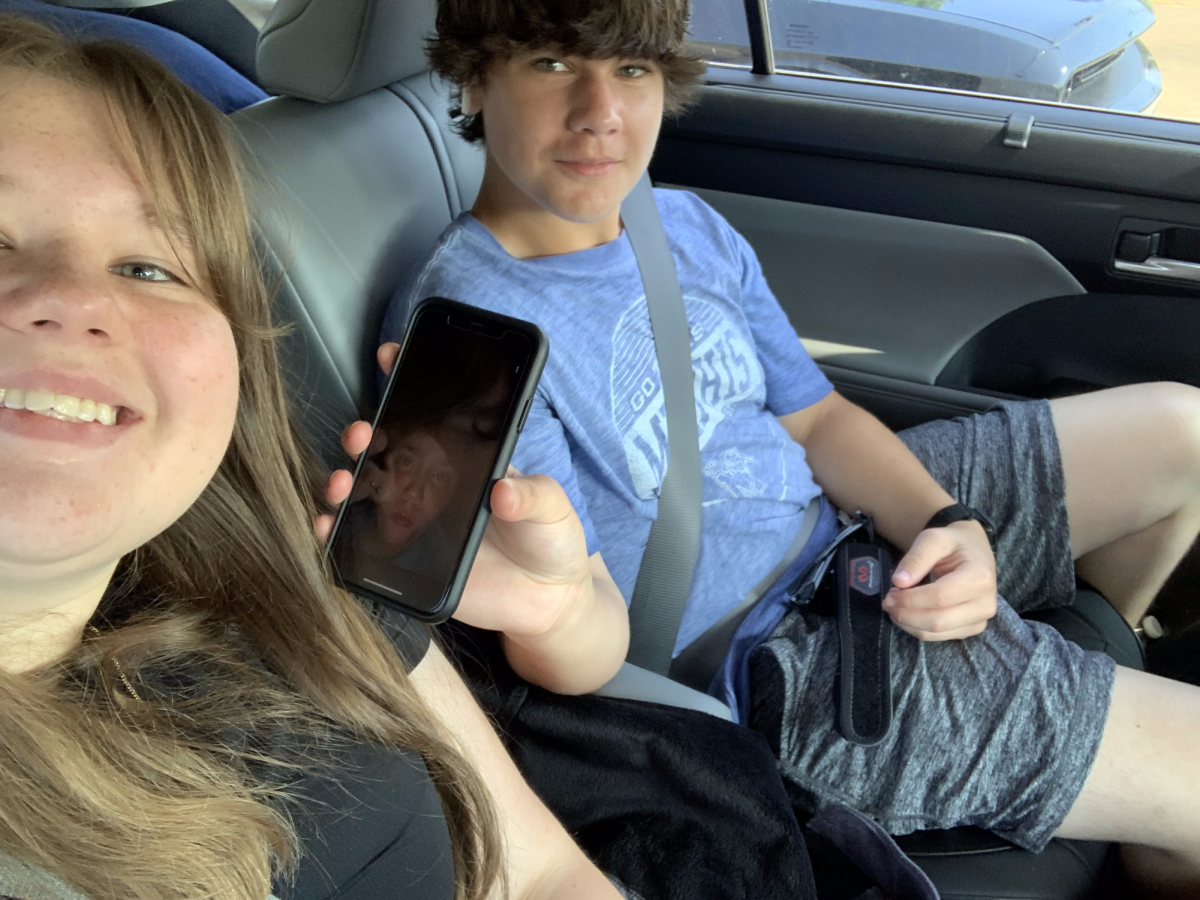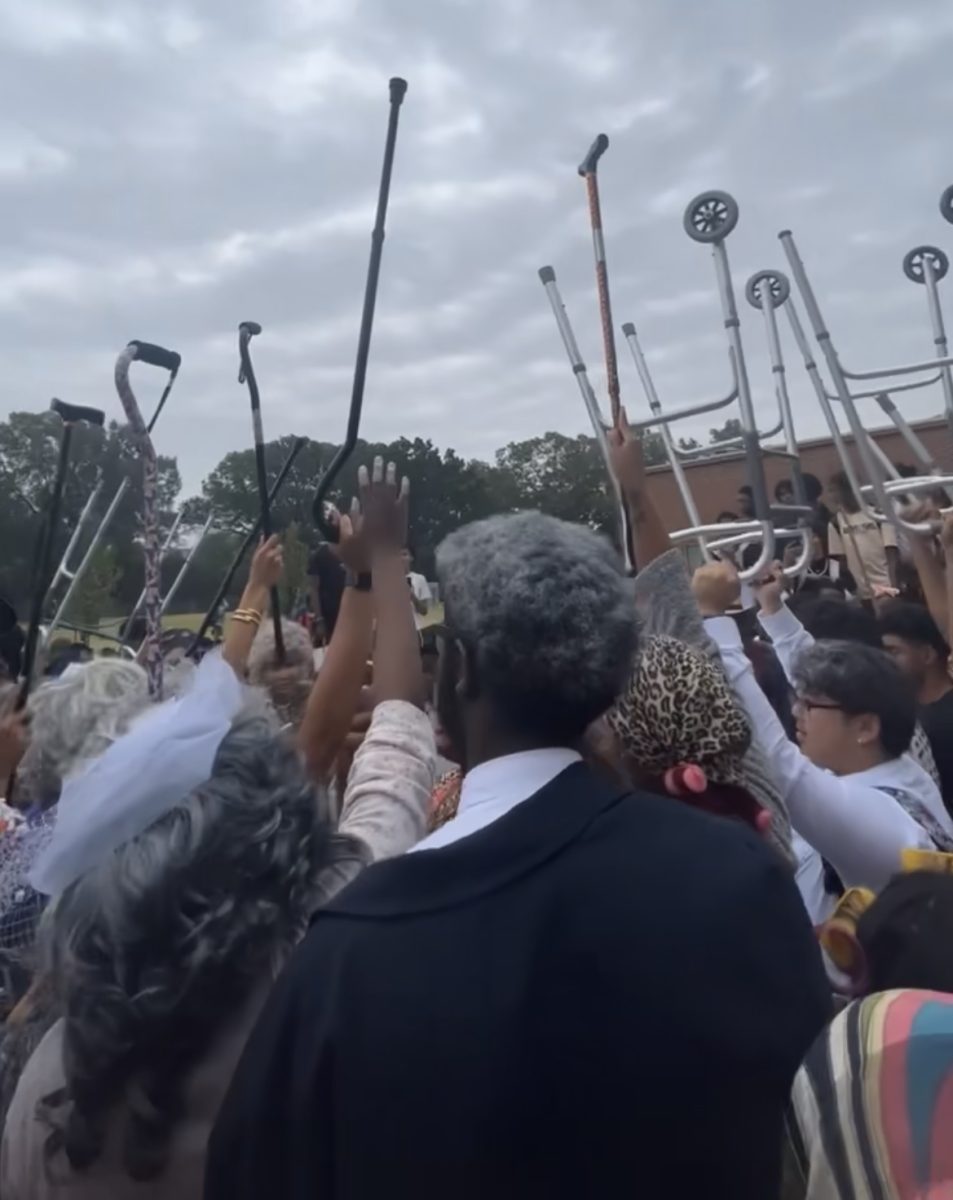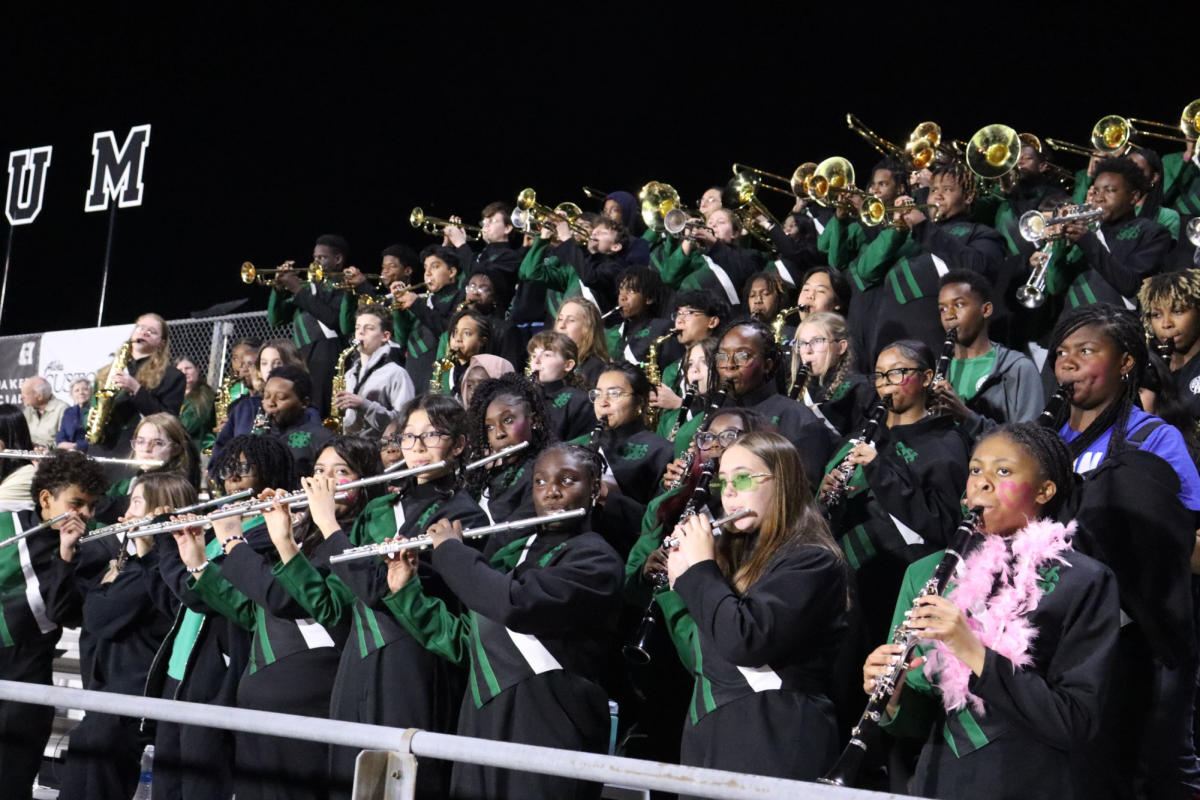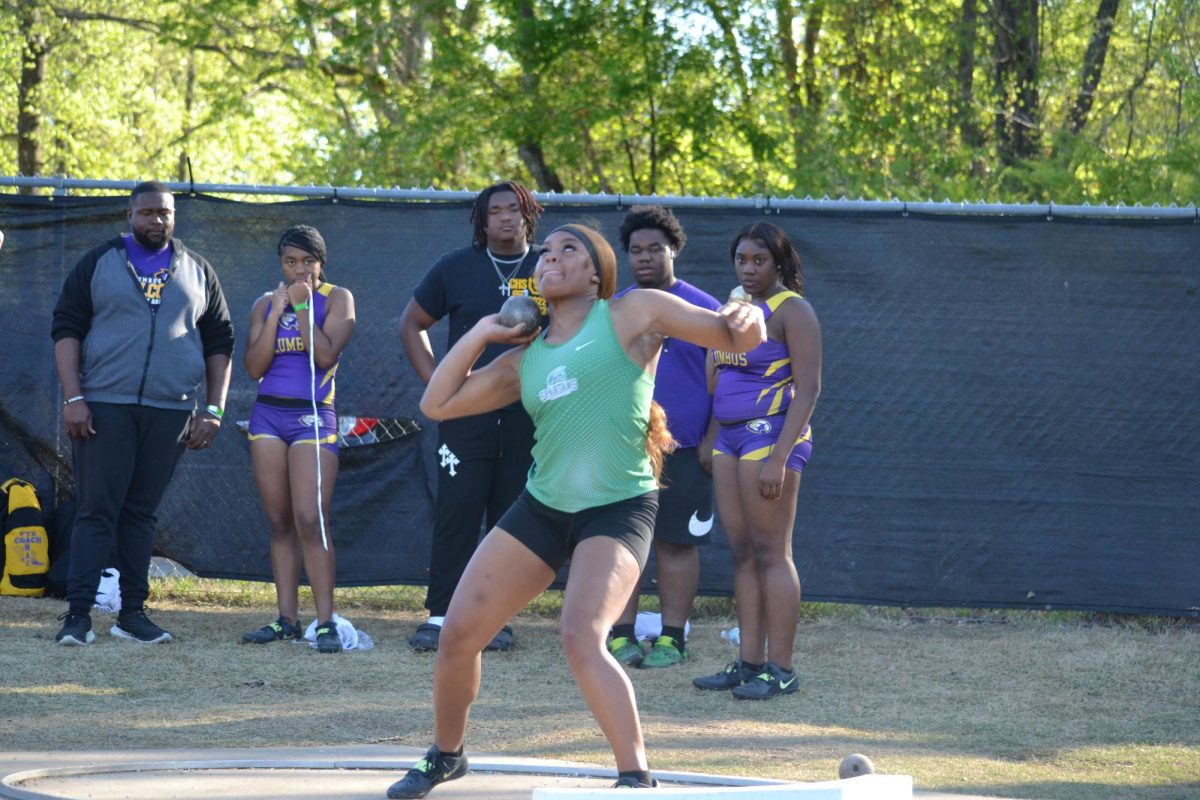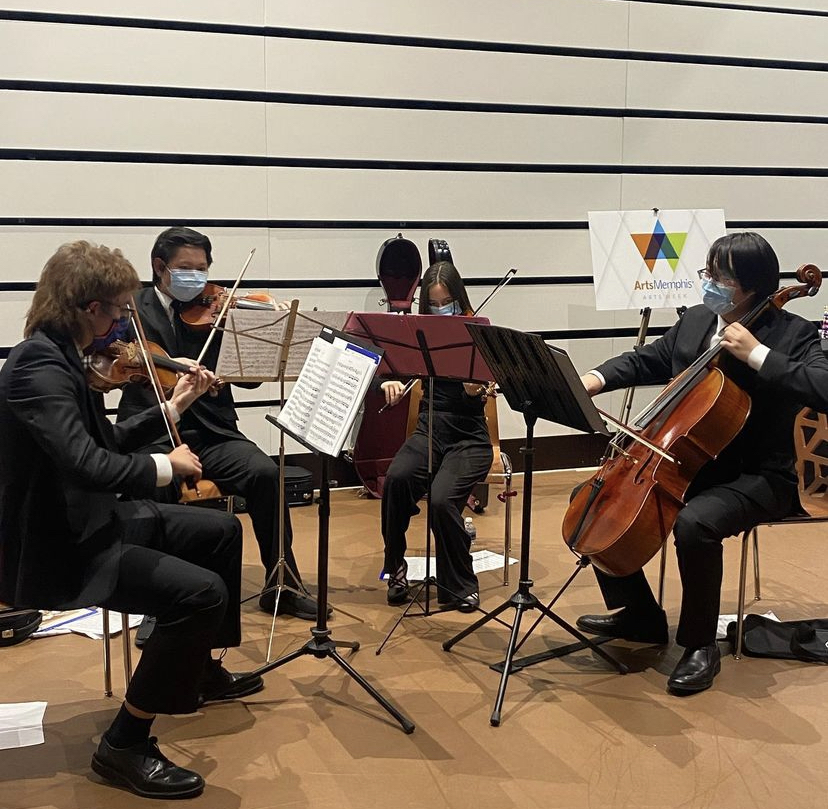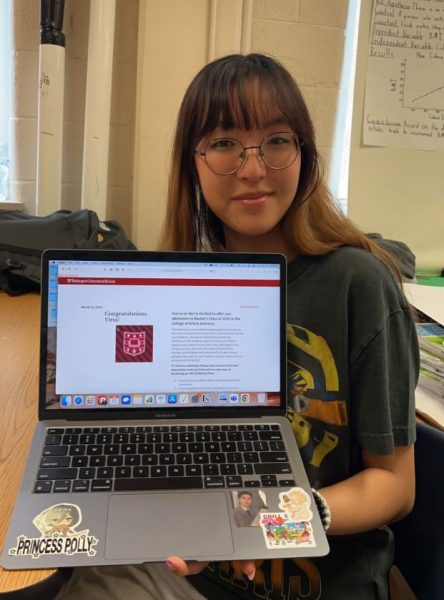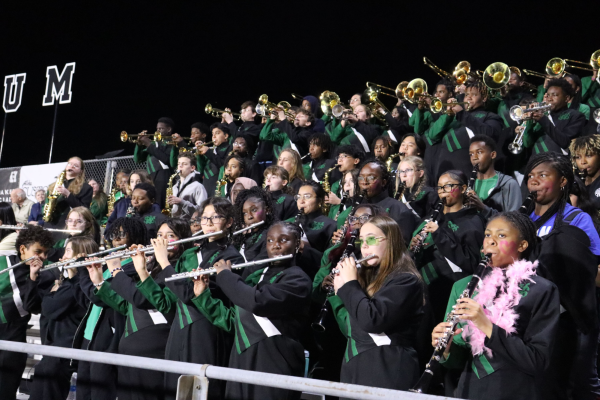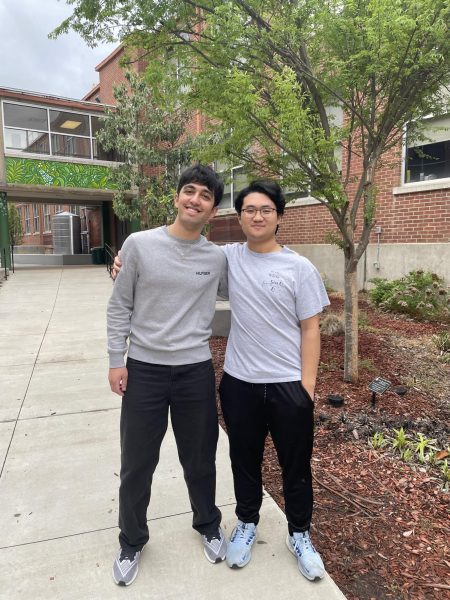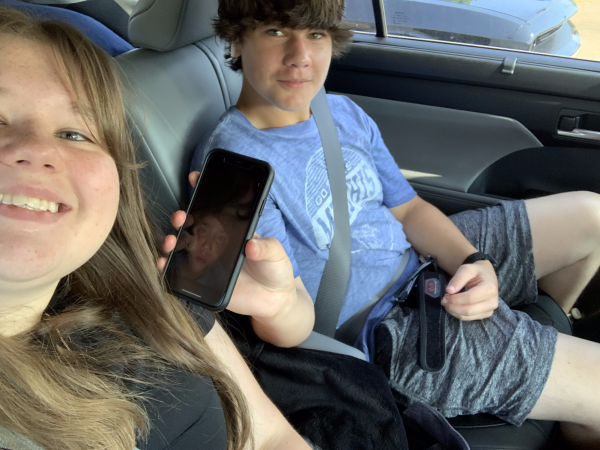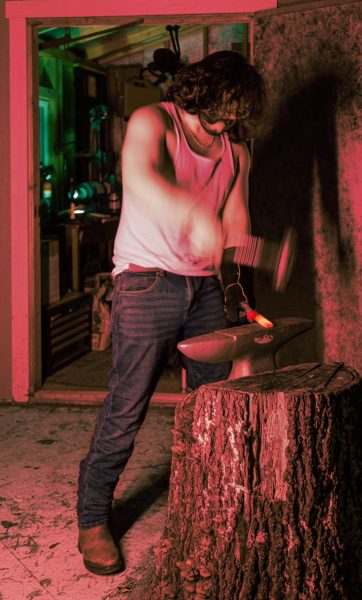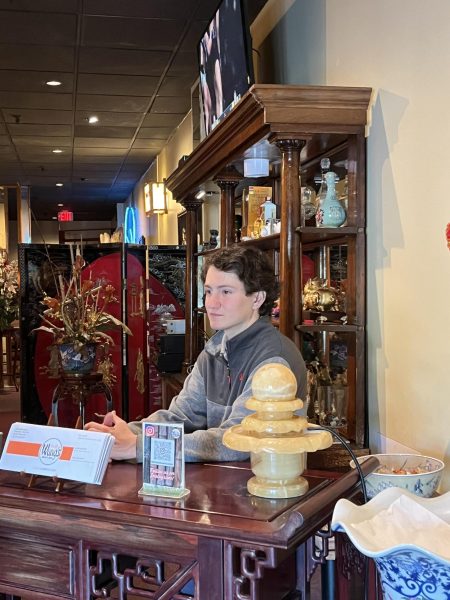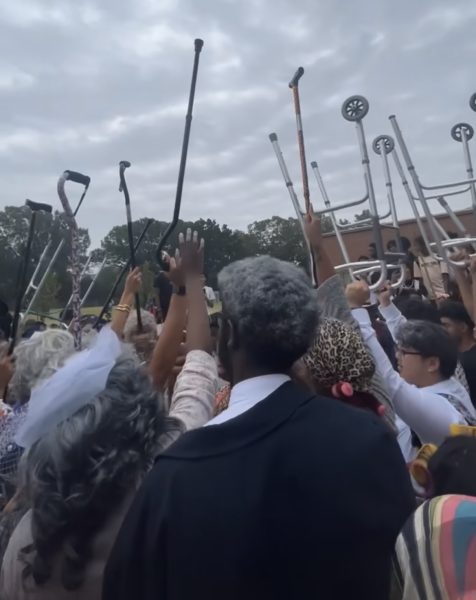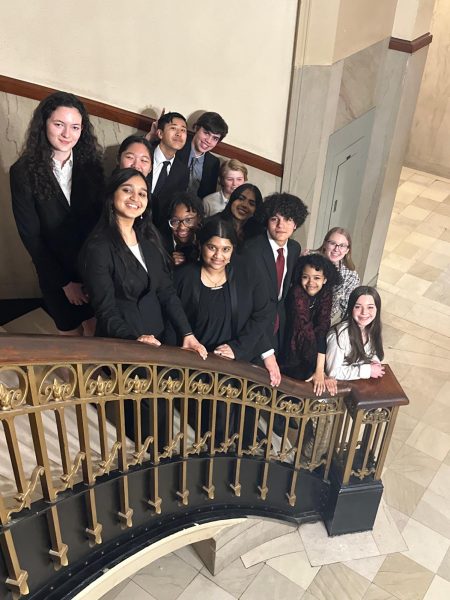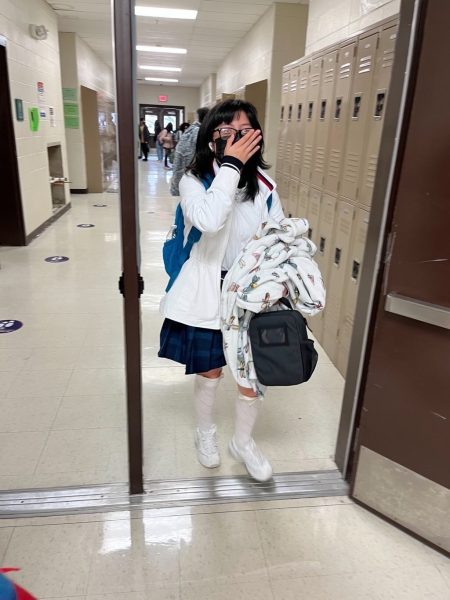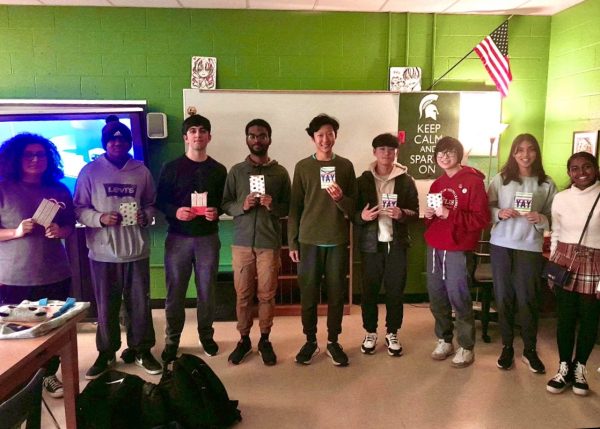A look into the lives of student musicians
Memphis Youth Symphony (ARTS Memphis)
(Left to Right) Russell Wolfe (11), Jimmy He(11), Abby Cassius (12) and Anyu Gu (11) perform at the Arts Weekholiday party at Collage Dance Collective. The quartet has performed at a variety of venues around Memphis including the Levitt Shell and Crosstown Concourse.
Inspiration for the arts sparks at a young age. Cultivation for the craft spans for years. A student musician’s life is not easy, nor will it ever be, but the vibrant melodies cultivated are what motivate students to continue their musical journey.
For some, the love for music starts at a young age. Many students are enrolled in private lessons while others join a school program. Abby Cassius (12) began her journey on the viola in fifth grade.
“My current orchestra director, Dr. Palmer, came to my elementary school with a case full of instruments,” Cassius said. “Once every week before school, we would come in early and practice our instruments with him. I decided that the viola sounded cool because it could go lower than a violin, but it wasn’t as big as a cello. Ever since then, I did orchestra with the school and soon joined the White Station Quartet my sophomore year. I also joined the Memphis Youth Symphony Program.”
Listening to music allows people to relate and feel understood. However, playing an instrument can evoke emotions that some cannot explain. In Anyu Gu’s (11) words, it is a “mix of emotions.”
“Some days I feel like I’m not improving and some days it feels amazing,” Gu said. “Playing with the quartet and the orchestra is very fun. However, practicing is very time consuming and tedious. But, you must practice to improve.”
The average musician practices 1-2 hours per day to prepare for events and recitals. Though practice can seem discouraging, it is also what builds motivation and introduces rewards.
“When I was just a part of my school’s orchestra, I would only practice 30 minutes a day,” Cassius said. “I did not have a private teacher, and I would not have any other events outside of school related performances and auditions. After becoming more involved, I began to practice about an hour a day unless things got really busy with school. Having more things to prepare for definitely encourages practice time. It helped my growth as a musician, and I can hear the difference in my playing compared to middle school.”
Many musicians decide to test their skills in various auditions and competitions where they are tested on their music theory, quality of playing and in some cases, history.
“I participate in a few competitions and auditions, such as All West/All State, certain concerto competitions and auditioning for [Germantown Youth Symphony Orchestra] (GYSO) [for violin] each semester,” Haley Cole (11) said. “I enjoy preparing for auditions and participating in the events that a good audition will allow me to do, but I don’t like taking the auditions themselves because of the anxiety they bring.”
Auditions and competitions are not the only way students showcase their talent. Some form quartets where four instrumentalists or vocalist join together to create a final product. Jimmy He (11), Russel Wolfe (11), Gu and Cassius make up the White Station string quartet producing music across the city of Memphis.
“Performing at school was always fun but we were mostly playing for parents and family friends,” Cassius said. “I wasn’t getting as much fulfillment. Soon, I was given the opportunity to join the quartet. I could work with other teenagers and become inspired while also playing for other people who would enjoy the music more than some of the parents.”
The glamor of performing only lasts for a little while. Musicians face many trials and errors that lead to learning experiences that are beneficial for the future.
“The biggest trial I face is performance anxiety,” Cole said. “I can practice something 500 times at home and still make a mistake because of nervousness, especially during auditions. This can also affect my musicality to a degree.”
Though musicians may face trials, memorable stories are often born due to unexpected events.
“My first gig with the quartet was really crazy and memorable,” Cassius said. “There was an old music teacher hosting a birthday party and there were musicians playing the whole night. They set up four microphones for us on the stage, and I was very nervous because we were seen as on par with the professionals. This was my first paid gig, and I received $50 which was really cool.”
Student musicians often struggle with one of many things: time management. Balancing school and performances can certainly be tough, but are oftentimes rewarding in the end.
“Some days I can’t practice nearly as much as I would like, but I don’t think that hinders my progress substantially,” Cole said. “I find playing the violin actually makes school easier, as it is stress-relieving and provides a nice break from homework.”
The long lasting impact that music has on student musicians will stick with them for a long time.
“Playing my instrument is one of the most rewarding things I do,” Cole said. “Even though I started playing much later than most and consequently haven’t played nearly as long, I enjoy it, and that is the most important thing. You don’t have to be the best to benefit from playing an instrument, and it’s never too late to start.”
Your donation will support the student journalists of White Station High School. Your contribution will allow us to purchase equipment and cover our annual website hosting costs.



